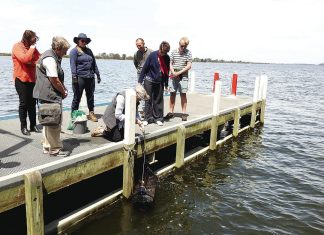Timothy Robinson, assistant campaign director, Regional Victorians Opposed to Duck Shooting
LETTER TO THE EDITOR
REGARDING the regional economy, we whole-heartedly agree that rural communities are crying out for relief at the moment.
However duck shooting is a negative impact.
Based on a survey of shooters self-professed to hold bias back in 2013, duck shooting only contributed $99 million to the entire state, $2.4 million and 16 total jobs to east Gippsland.
This is being generous, as it includes direct and flow-on figures.
This survey failed to account for the adverse impacts of duck shooting to those who work from home near it or businesses whose tourist visitors drop off because of it – in fact anyone other than shooters.
Conversely, nature-based tourism – which is hampered by duck shooting – is bringing significant benefit to other communities.
Examples include Winton Wetlands where they shoot with cameras, which now has more than 60,000 visitors a year to one little area near Benalla (that’s more than twice the total number of duck shooters there are across the whole state).
Phillip Island Nature Parks contributes $498 million and 2100 jobs to Victoria, $120 million and 800 jobs just to the local area.
We are not opposed to shooting sports at all, and many of our members have guns for genuine farm reasons.
However we are absolutely opposed to the unnecessary killing and maiming of our native waterbirds (at least one in four birds will not be killed outright according to ballistics experts – but flap away to die slow painful deaths).
Many species are unique to our country. Duck shooting is far from popular.
Less than half of one per cent of the population shoots ducks – a number that is declining.
Conversely, professional polls continue to show the majority of Victorians want it banned.
Regarding east Gippsland, only 2.4 per cent of voters are duck shooters – and this is the second highest count of duck shooters of all electorates.
The majority of electorates have less than half of one percent, and the electorate with the highest number has only 2.48 per cent of voters who are duck shooters (GMA licence statistics extrapolated per postcode to electorates).
More people are moving to rural areas near waterways and more people are interested in nature-based activities like bush walking (in the top 20 – shooting is not) and bird watching – a $41 billion dollar industry in the United States alone.
Both these pastimes, amongst others, are adversely affected by the shooting of animals nearby.






